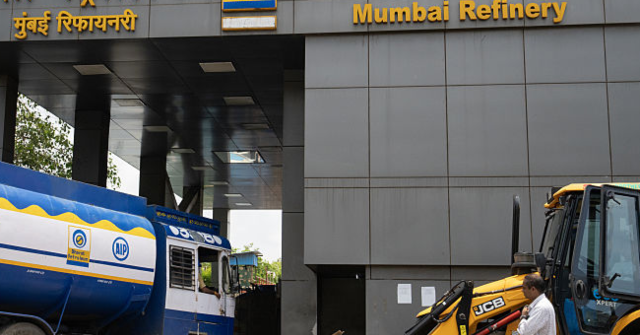According to shipping data, the top buyers of Russian seaborne fuel in July were Saudi Arabia and India, although India has backed off Russian oil imports slightly.
Reuters on Tuesday cited industry data that showed Saudi Arabia purchased about 1.1 million metric tons of fuel oil and vacuum gasoil (VGO) from Russia in July, holding fairly steady from June. Saudi Arabia and other Middle Eastern countries tend to increase their imports of such fuels during the summer due to high demand for energy to power air conditioners.
India still seems intent on taking advantage of discounts offered by Russia after many other customers began boycotting Russian oil following the 2022 invasion of Ukraine. Those discounts have been reduced recently, and so have India’s imports, though they remain prodigious.
India’s state-owned refineries paused their Russian oil buys at the beginning of August, ostensibly in response to vanishing discounts, although it might also have been an effort to placate the Trump administration — or a demonstration to Moscow that India can make do without Russian oil if it wants.
Bloomberg News reported on Tuesday that Indian refiners are “planning to trim their purchases in the coming weeks” as a “modest concession to Washington’s hawks,” but the cutback in Russian oil imports will be small enough to make it clear that India “has no plans to sever ties with Moscow.”
The cuts envisioned by Bloomberg’s sources would take India down from its 2025 average of 1.8 million barrels per day (bpd) of Russian oil to perhaps 1.4 million bpd — with the possibility of deeper cuts on the table if President Donald Trump finalizes a trade deal with India. None of India’s big state-run refineries were willing to go on the record to confirm the report.
Absent a trade deal, India is scheduled to face 25 percent general tariffs, plus a 25 percent punitive tariff for buying Russian oil, beginning on Wednesday.
Vinay Kumar, India’s ambassador to Russia, told Russian state media on Sunday that India’s oil purchases are based solely on “market factors” and the need for “energy security.” He insisted India will continue to buy oil from wherever it “gets the best deal.”
Kumar called Trump’s punitive tariffs “unfair, unreasonable, and unjustified.”
Writing at the Financial Times (FT) on Tuesday, Energy Aspects market intelligence director Amrita Sen argued that Trump and other Western policymakers might regret getting India to slash its imports of Russian oil, because Russia’s other big customer China does not have the refining capacity to absorb Russia’s products, and neither America or OPEC is quite ready to supply India’s needs.
Sen warned the result could be oil surging past $100 a barrel, “a level that Trump and Europe would likely balk at.” The post-invasion understanding that India would buy Russia’s oil at steeply discounted prices, on the other hand, kept oil prices low and Russian profits down.
“One path to a resolution could be some combination of Indian concessions on U.S. agricultural tariffs, some pledged reduction in Russian oil purchases (a rebalancing that seems to be happening already) and/or an increase in commitments to buy energy from the U.S.,” Sen suggested.
Read the full article here


